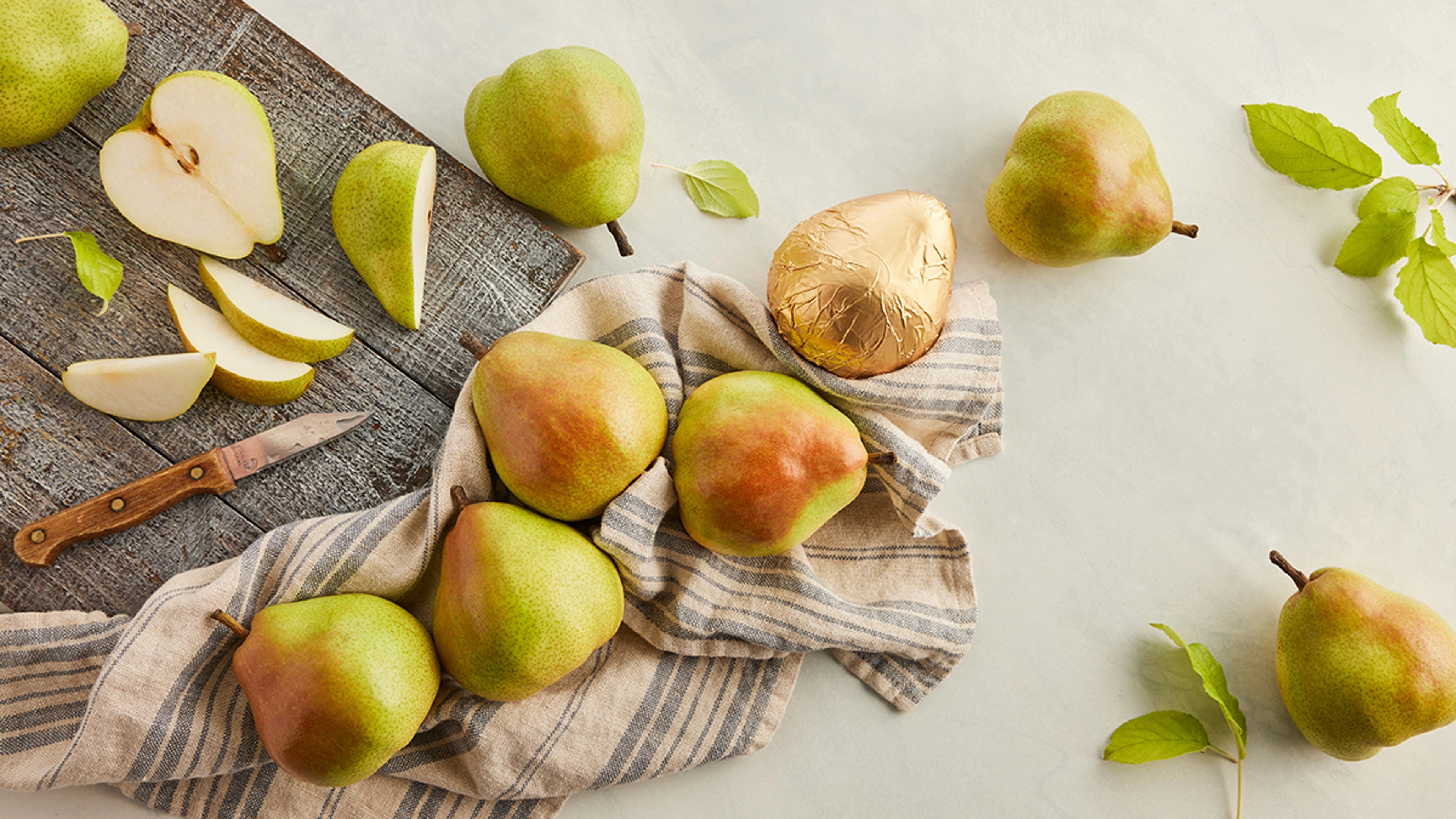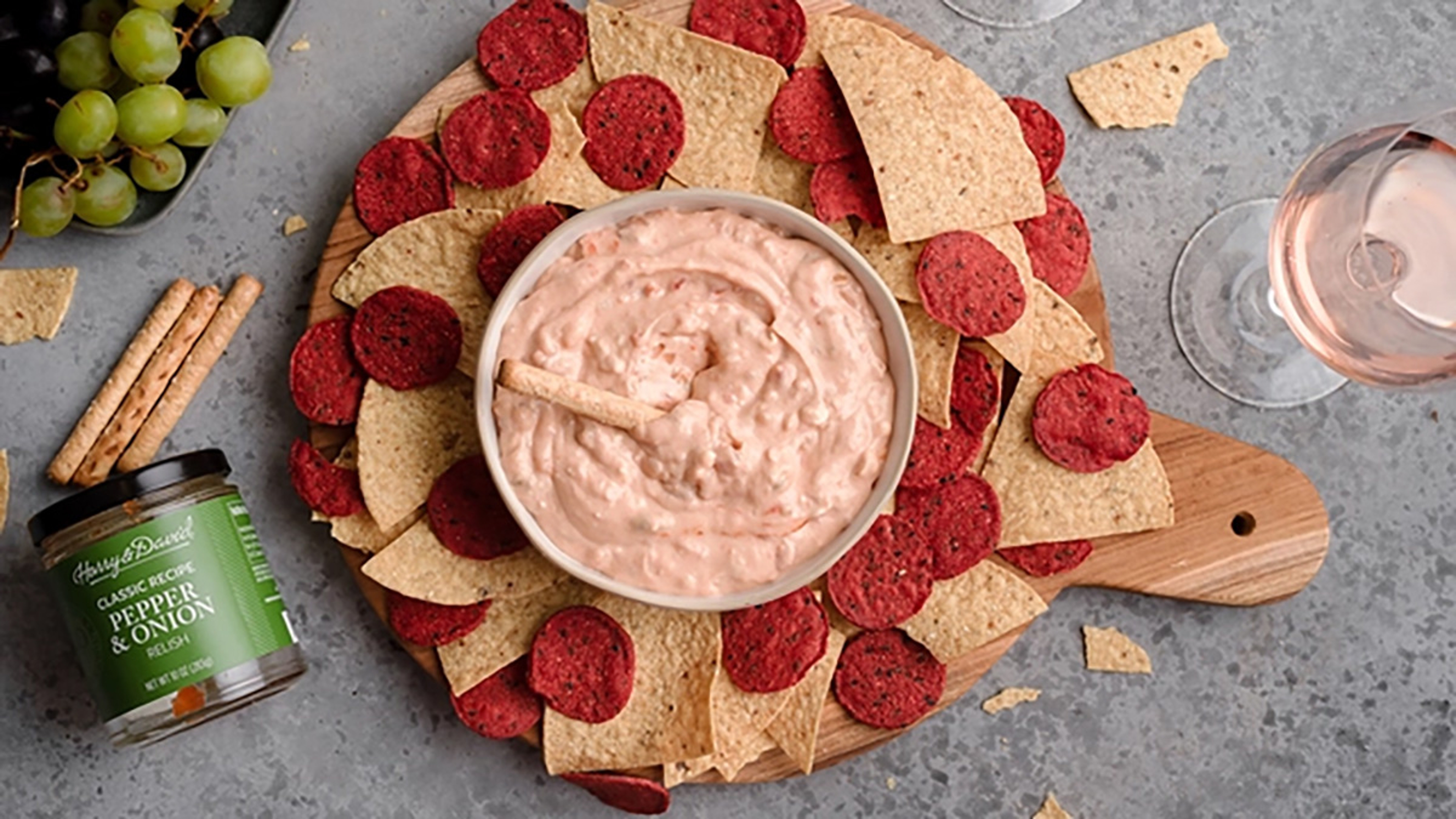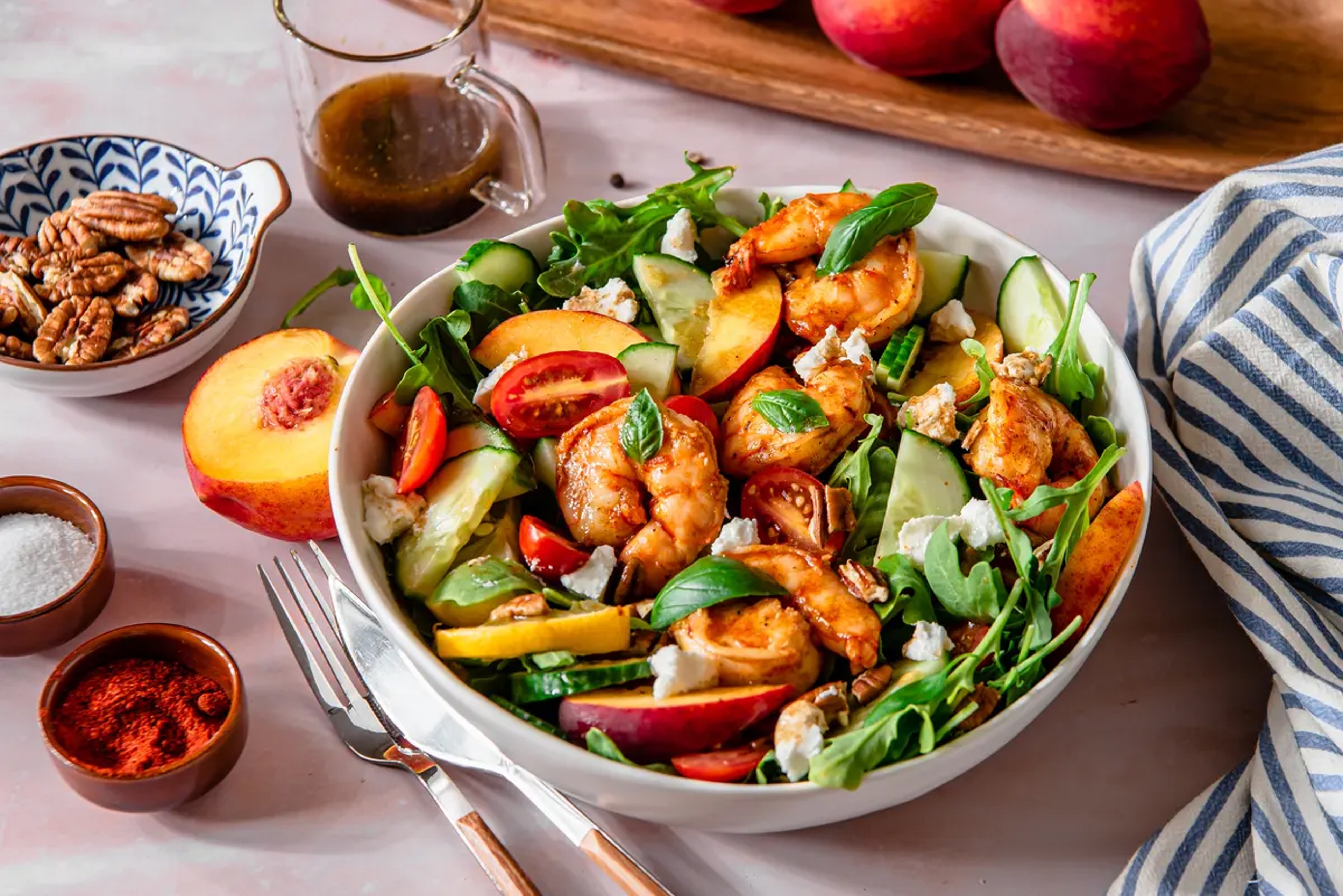January's Veg of the Month: Sweet Potatoes
Would you eat a sweet potato that looks like a cucumber? You should.
Dec 20, 2023
Of all his beloved vegetables grown at The Chef's Garden in Huron, Ohio, sweet potatoes are the one Farmer Lee Jones cites as a particularly "sweet" area of interest and excitement.
"We're working with Louisiana State University (LSU) to reintroduce old heirloom sweet potato varieties that stand a chance of becoming extinct," Farmer Lee explains. "Traditional sweet potato varieties sold in supermarkets are limited to a handful of varieties that are going to produce the most tons per acre and have the highest disease resistance, but the ones we grow are so much more unique and flavorful."
Many sweet potatoes, Farmer Lee says, have a most unusual shape. "Sometimes you would look at these potatoes and not even identify them as sweet potatoes — they're more elongated, have a twist, or may be the size of a cucumber rather than the big honkers that we're used to seeing."
Each year, LSU sends Farmer Lee about 40 trial varieties to try, and the culinary department at The Chef's Garden Culinary Vegetable Institute provides tasting notes. "They allow us to pick the ones we're most excited about," Farmer Lee says. "All we grow are the heirloom varieties that we're trying to reintroduce — they're extraordinary!"
What makes Chef's Garden sweet potatoes special?
Farmer Lee and his team taste and test dozens of sweet potato varieties before they go to market, selecting only the ones with great flavor and unique features. The "Crème Brulée" variety has white flesh with hints of vanilla and toffee, while the Coper Penny varietal is rich and dense, and reminiscent of fall squash. Then there's the purple Crown Jewel potatoes, which go equally well in savory and sweet dishes — their higher starch content makes them great for frying. And if you can't decide on just one kind, try all them.
Glorious, tasty sweet potatoes are good for you, too! They are full of fiber and are a good source of beta-carotene, which, when consumed with healthy fat (such as olive oil) to aid absorption, our bodies convert to vitamin A, a nutrient that helps boost our immune health.
And don't forget about the potato's exterior. Skin is in, Farmer Lee says: Sweet potatoes are lower on the glycemic index when you eat or boil them with the skin on.
How to care for and store sweet potatoes
Look for smooth sweet potatoes with no soft spots or bruising. They should not look desiccated, meaning they do not have brown spots and wrinkles due to moisture loss.
Do not refrigerate sweet potatoes. Instead, keep them in a cool, dark, dry place or store them in a paper bag in a cool spot and use them within one to two weeks. Scrub them if necessary. “You can peel them," Farmer Lee says, “but that often means you're throwing away nutrients."
How to use sweet potatoes
In many parts of the world, sweet potatoes are cooked whole — baked, wood roasted, or steamed — and served plain or with a minimal garnish.
If you have a sweet tooth, well, "knock it back by warming up a sweet potato in the microwave," Farmer Lee recommends. "At home, I keep them pre-cooked in the fridge for just that."
Sweet potatoes, however, are incredibly versatile and can be mashed or cubed, added to veggie tacos, delicious Brussels sprouts, and sweet potato hash, cut into sticks to roast or fry, or baked and used as a bowl for Game Day chili. They play well with fall and winter spices, including cinnamon, ginger, cumin, coriander, and various chilis — use as you wish to liven up an easy, delectable scalloped sweet potato bake. Include roasted sweet potato rounds in a cheesy panini with apples, pears, and brie. Mash their flesh for muffins, pies, scones, and even smoothies for a fiber-rich and filling addition.
READ MORE: Sweet Potatoes 5 Ways
But you'll never look at sweet potatoes the same way again once you use them to make a sweet potato ice cream cone, as Farmer Lee does in his book The Chef's Garden: A Modern Guide to Common and Unusual Vegetables — with Recipes. Now that's sweet!
.svg?q=70&width=384&auto=webp)

























